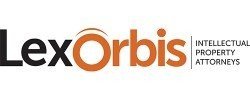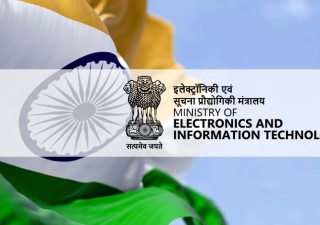Novartis v. Natco imparts clarity on examination and opposition process under Patents Act being parallel but independent
31 May 2024

In a decision dated January 9, 2024, the Delhi High Court clarified that the examination and opposition process, though statutorily structured to proceed parallelly, are independent and separate.
The appeal emanated from an earlier decision of the court in Natco Pharma Ltd. v. Assistant Controller of Patents & Designs (W.P.(C)-IPD 2/2023). Natco Pharma Limited had filed the said writ petition challenging the order of the Controller of Patents dated December 14, 2022, wherein certain amendments made by the patentee, Novartis AG, were allowed. Subsequently, its patent was granted without affording an opportunity of hearing to the pre-grant opponent, Natco.
The dispute revolves around Novartis’ patent application IN 414518 (IN’518), where Natco raised objections during pre-grant opposition filed before the Indian Patent Office (IPO). Natco had approached the court on multiple occasions when its application to cross-examine the Novartis’ expert witness was not considered later for filing rebuttal evidence. While granting said reliefs to Natco, the court had also directed IPO to conclude all pre-grant opposition hearings within the fixed timelines. IPO conducted the hearings accordingly and directed Novartis to make certain amendments to the claim set. Consequently, Novartis amended its claims, and IN’518 was granted. However, since the amendments were not notified to Natco or any other pre-grant opponent, they filed a writ wherein the impugned order dated January 12, 2023, was passed. The impugned order set aside the grant of IN’518 and remanded it back for fresh consideration with a direction to ensure the involvement of pre-grant opponents in the examination process. The present order of the court sets aside this impugned order.
The central question under consideration was whether pre-grant opponents opposing a patent application before its grant must be actively involved in the examination process, particularly the right to represent against both voluntary amendments and those that may be directed by the Controller.
Novartis’s contention revolved around the distinction between pre-grant and post-grant opposition proceedings and the associated rights of opponents when their pre-grant opposition is rejected. The court’s stance on the time constraints of pre-grant opposition underscores the need for a stringent interpretation of Section 25(1) of the Patents Act, 1970. Novartis challenged the finding of natural justice violation in the Controller’s proceedings, asserting that the impugned order was based on an incorrect understanding of the legislative scheme, especially Sections 12 to 15 of the act and Rules 24B, 28, and 28A of the Patent Rules, 2003.
Emphasizing the separate nature of examination and opposition processes, Novartis argued against opponents having a right to a hearing during the examination, citing Sections 14 and 15 of the act. The role of Rule 55 of the Patent Rules and the distinction between pre-grant and post-grant oppositions further shape Novartis’ legal stance. Ultimately, Novartis contends that compliance with the Controller’s directives for amendments was met, and the prolonged opposition caused significant delays, emphasizing the need for a comprehensive examination of the case’s merits.
Contrarily, Natco asserted that once a pre-grant opposition is initiated and opponents participate, the opposition proceedings seamlessly integrate with the examination, establishing an adversarial context. While emphasising statutory schemes in alignment with the principles of natural justice, it was argued that opponents should be actively involved in all stages, justifying their participation even during the examination process’s amendment phase. Natco highlighted Section 25(1) of the act, contending that opponents can submit a pre-grant opposition until the grant stage, reinforcing their relevance in Controller-suggested amendments. Addressing the absence of an appeal for pre-grant opponents under Section 117A of the act, NATCO further stressed the imperative nature of opponents’ participation in all examination facets. Referring to the decision in UCB Farchim, NATCO refuted Novartis’ claims, asserting that Section 25(1) proceedings intertwine with Section 15 of the act.
Exploring Rule 55(1-A), Natco clarified its role, giving opponents a six-month window to file representations against a patent’s grant. Natco detailed Rule 55(3) of the Patent Rules and its obligation on the Controller to consider opponent submissions, issuing notices when necessary. The inquiry, involving a thorough assessment of representations, statements, evidence, and applicant submissions, underscores the adversarial nature and the application of natural justice principles, as indicated by Rule 55(5) of the Patent Rules requiring a hearing of parties.
The key points discussed and observations made by the court while setting aside the impugned order can be summarized and broadly enlisted as below:
- Independent examination process: The court emphasized that the examination process, initiated by the Controller, is an independent statutory duty. It proceeds regardless of objections and aims to ensure the patent application is evaluated on merits. Objections, although aiding examination, do not override the Controller’s obligation to assess the application independently.
- Distinct purpose of pre-grant opposition: The court acknowledged the value of the pre-grant opposition stage, highlighting its role in eliciting diverse opinions and objections. It facilitates a comprehensive exploration of issues beyond direct stakeholders, contributing to a well-informed decision.
- Separation for rigorous examination: It is crucial to maintain a clear distinction between examination and opposition processes. Merging these processes would compromise the rigorous examination and contradict the legislative intent of expeditious consideration.
- Limited right to hearing: The court clarified that the right to oppose and be heard under Rule 55 of the Patent Rules is confined to the representation stage, triggered when the Controller deems raised issues warrant rejection or amendment. This right does not extend to a broader participation in the examination process.
- Role of opposition in examination: While opposition aids examination by providing external inputs, the court emphasized that the examination process demands a focused evaluation of the patent application against set legal standards, a task reserved for the Controller.
- Distinct nature of amendments: The court differentiated between voluntary amendments proposed by the applicant and those directed by the Controller. It emphasized that amendments based on Controller directives do not fall under Section 57(6) of the act, highlighting the separation of examination and opposition processes.
- Evaluation based on prejudice and justice: The court criticized the impugned judgment for not evaluating alleged violations of natural justice based on prejudice and manifest injustice. It highlighted the importance of considering the timing of objections in line with legislative mandates.
- Clarification on Rule 55 hearing: The court clarified that the hearing under Rule 55 of the Patent Rules is confined to objections and does not confer a participatory role or a right to be heard in the examination process.
- Preservation of legislative intent: The court emphasized that preserving the legislative intent includes preventing abuse of the pre-grant opposition right, ensuring timely proceedings, and avoiding undue delays in the examination process.
This decision reinforces the autonomy of the patent examination process, highlighting it as a distinct statutory duty vested in the Controller and providing clarity on the nuanced dynamics of patent law, safeguarding stakeholder participation while upholding legislative intent. The decision encourages a balanced approach to preserve opponents’ rights without impeding the expeditious consideration of the patent application, firmly maintaining a separation between examination and opposition to ensure expeditious and fair proceedings.








